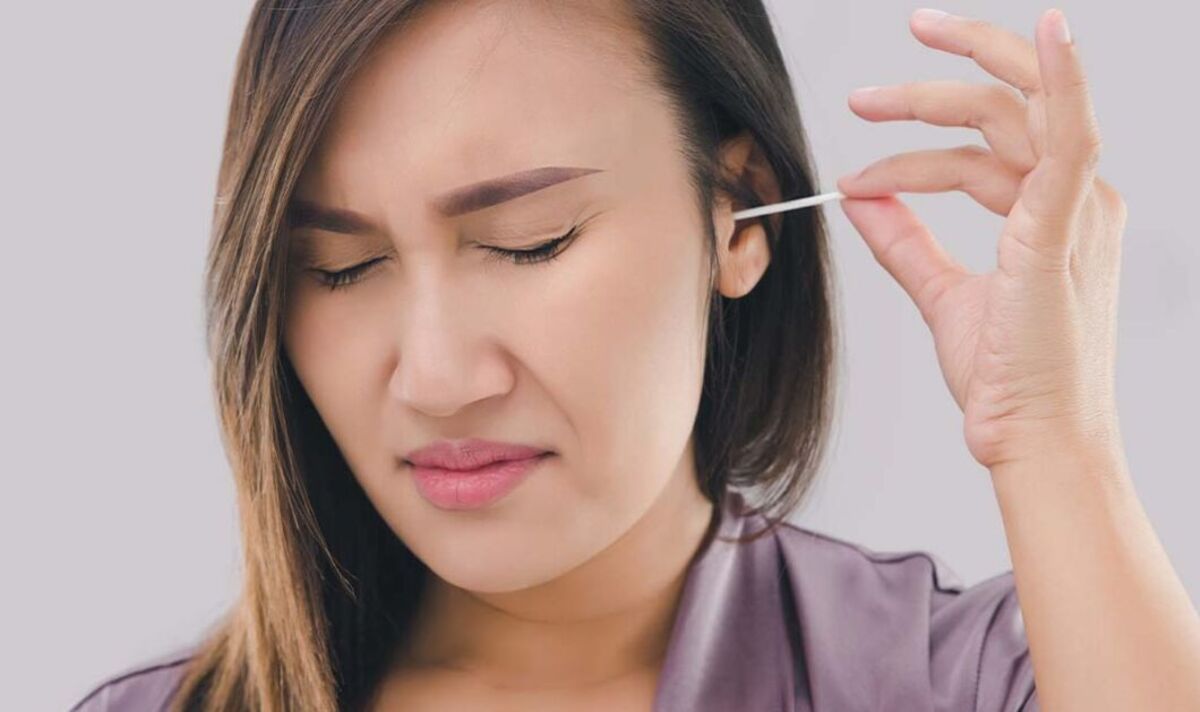Earwax isn’t all bad. The sticky substance helps to trap dirt and dust, acting as a natural moisturiser and protecting the inner ear from germs and infection.
However, your earwax could also be a sign of an underlying health problem, according to a doctor.
The warning not to ignore the signs of excessive earwax build-up comes after the news that almost 10 million people in England can no longer access free earwax removal services offered by the NHS.
The Royal National Institute for Deaf People (RNID) said last week that there was “no medical reason” for the withdrawal of these services, and warned that those who can’t afford private treatment were turning to self-removal methods considered to be “dangerous”.
Following the RNID’s claims, Doctor Veronika Matutyte has urged people not to feel discouraged by the service cuts and keep an eye on changes to earwax as they can be an indicator of a bigger health issue.
Dr Matutyte told The Sun: “While earwax is often seen as a trivial matter, it holds much more significance than we generally acknowledge. I always tell my patients to pay attention to their bodies, even to the smallest signs like changes in earwax.
“Remember, our body has its way of signalling distress; sometimes, it’s through something as simple as earwax.”
The doctor also outlined three conditions that could be linked to excessive earwax.
1. Lupus
Lupus refers to a disease that occurs when your body’s immune system attacks your own tissues and organs.
The condition can trigger a variety of problems, including joint pain, skin rashes, tiredness, mouth ulcers, hair loss, chest or tummy pain, and even depression.
According to Dr Matutyte, it can also cause excessive earwax because of “chronic inflammation” that can extend to the ears and cause “abnormal earwax production”.
Dr Matutyte explained that patients with lupus might notice changes to the consistency and colour of their earwax, and while the symptom can be “subtle”, it shouldn’t be ignored.
2. Swimmer’s ear
Triggered by repeated exposure to water, swimmer’s ear, also known as otitis externa, causes the external ear canal to swell and redden.
One of the main signs of the painful condition is excessive earwax, which can also include a discharge of liquid or pus from the ear, as well as other symptoms including ear pain.
If you are suffering from any symptoms linked to swimmer’s ear, you should see your GP.
3. Otosclerosis
Otosclerosis describes a problem with the bones inside your ear which causes gradual hearing loss. While this condition doesn’t necessarily cause excessive ear wax, Dr Matutyte warned that some patients mistake their symptoms for earwax build-up and ignore them until they begin to lose their hearing.
The NHS recommends seeing a GP if you think your hearing is getting worse, or if you have tinnitus regularly.










